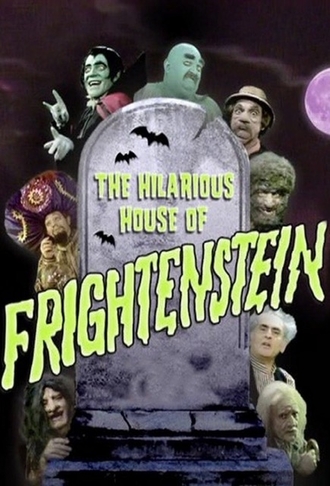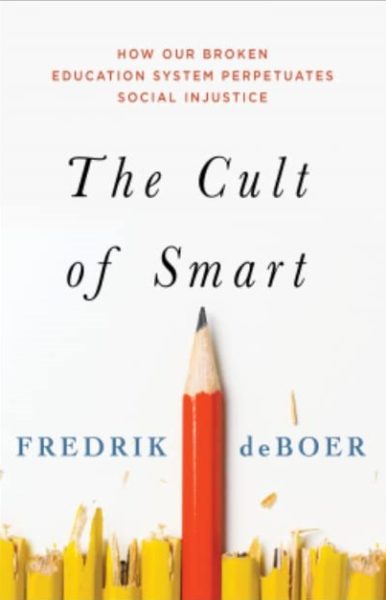Little Car
Published 4 Feb 2020Corgi Toys is the name of a range of die-cast toy vehicles produced by Mettoy Playcraft Ltd. in the United Kingdom.
The script for this video comes from Wikipedia: https://en.wikipedia.org/wiki/Corgi_Toys
If you find issues with the content, I encourage you to update the Wikipedia article, so everyone can benefit from your knowledge.
To get early ad-free access to new videos, or your name at the end of my videos, please consider supporting me from just $1 or 80p a month at https://www.patreon.com/bigcar
Link to my other channel – Big Car: https://www.youtube.com/bigcar2
February 23, 2021
The Corgi Toys Story
February 19, 2021
Freddie DeBoer’s arguments against successful charter schools
Scott Alexander’s extensive review of Freddie DeBoer’s book The Cult of Smart includes this discussion of DeBoer’s belief that American charter schools are fraudulent and only manage their headline-worthy educational outcomes by “cooking the books”:
I think DeBoer would argue he’s not against improving schools. He just thinks all attempts to do it so far have been crooks and liars pillaging the commons, so much so that we need a moratorium on this kind of thing until we can figure out what’s going on. But I’m worried that his arguments against existing school reform are in some cases kind of weak.
DeBoer does make things hard for himself by focusing on two of the most successful charter school experiments. If he’d been a little less honest, he could have passed over these and instead mentioned the many charter schools that fail, or just sort of plod onward doing about as well as public schools do. I think the closest thing to a consensus right now is that most charter schools do about the same as public schools for white/advantaged students, and slightly better than public schools for minority/disadvantaged students. But DeBoer very virtuously thinks it’s important to confront his opponents’ strongest cases, so these are the ones I’ll focus on here.
Success Academy is a chain of New York charter schools with superficially amazing results. They take the worst-off students — “76% of students are less advantaged and 94% are minorities” — and achieve results better than the ritziest schools in the best neighborhoods — it ranked “in the top 1% of New York state schools in math, and in the top 3% for reading” — while spending “as much as $3000 to $4000 less per child per year than their public school counterparts.” Its supporters credit it with showing “what you can accomplish when you are free from the regulations and mindsets that have taken over education, and do things in a different way.”
DeBoer will have none of it. He thinks they’re cooking the books by kicking out lower-performing students in a way public schools can’t do, leaving them with a student body heavily-selected for intelligence. Any remaining advantage is due to “teacher tourism”, where ultra-bright Ivy League grads who want a “taste of the real world” go to teach at private schools for a year or two before going into their permanent career as consultants or something. This would work — many studies show that smarter teachers make students learn more (though this specifically means high-IQ teachers; making teachers get more credentials has no effect). But it doesn’t scale (there are only so many Ivy League grads willing to accept low salaries for a year or two in order to have a fun time teaching children), and it only works in places like New York (Ivy League grads would not go to North Dakota no matter how fun a time they were promised).
I’m not sure I share this perspective. Success Academy isn’t just cooking the books — you would test for that using a randomized trial with intention-to-treat analysis. The one that I found is small-n, short timescale, and a little ambiguous, but I think basically supports the contention that there’s something there beyond selection bias. Teacher tourism might be a factor, but hardly justifies DeBoer’s “charter schools are frauds, shut them down” perspective. Even if Success Academy’s results are 100% because of teacher tourism, they found a way to educate thousands of extremely disadvantaged minority kids to a very high standard at low cost, a way public schools had previously failed to exploit. That’s not “cheating”, it’s something exciting that we should celebrate. If it doesn’t scale, it doesn’t scale, but maybe the same search process that found this particular way can also find other ways? Surely it doesn’t seem like the obvious next step is to ban anyone else from even trying?
And we only have DeBoer’s assumption that all of this is teacher tourism. Success Academy itself claims that they have lots of innovative teaching methods and a different administrative culture. If this explains even 10% of their results, spreading it to other schools would be enough to make the US rocket up the PISA rankings and become an unparalleled educational powerhouse. I’m not claiming to know for sure that this is true, but not even being curious about this seems sort of weird; wanting to ban stuff like Success Academy so nobody can ever study it again doubly so.
DeBoer’s second tough example is New Orleans. Hurricane Katrina destroyed most of their schools, forcing the city to redesign their education system from the ground up. They decided to go a 100% charter school route, and it seemed to be very successful. Unlike Success Academy, this can’t be selection bias (it was every student in the city), and you can’t argue it doesn’t scale (it scaled to an entire city!). But DeBoer writes:
After Hurricane Katrina, the neoliberal powers that be took advantage of a crisis (as they always do) to enforce their agenda. The schools in New Orleans were transformed into a 100% charter system, and reformers were quick to crow about improved test scores, the only metric for success they recognize. Whether these gains stand up to scrutiny is debatable. But even if these results hold, the notion of using New Orleans as a model for other school districts is absurd on its face. When we make policy decisions, we want to isolate variables and compare like with like, to whatever degree possible. The story of New Orleans makes this impossible. Katrina changed everything in the city, where 100,000 of the city’s poorest residents were permanently displaced. The civic architecture of the city was entirely rebuilt. Billions of dollars of public and private money poured in. An army of do-gooders arrived to try to save the city, willing to work for lower wages than they would ordinarily accept. How could these massive overall social changes possibly be replicated elsewhere? And how could we have any faith that adopting the New Orleans schooling system — without the massive civic overhaul — would replicate the supposed advantages?
These are good points, and I would accept them from anyone other than DeBoer, who will go on to say in a few chapters that the solution to our education issues is a Marxist revolution that overthrows capitalism and dispenses with the very concept of economic value. If he’s willing to accept a massive overhaul of everything, that’s failed every time it’s tried, why not accept a much smaller overhaul-of-everything, that’s succeeded at least once? There are plenty of billionaires willing to pour fortunes into reforming various cities — DeBoer will go on to criticize them as deluded do-gooders a few chapters later. If billions of dollars plus a serious commitment to ground-up reform are what we need, let’s just spend billions of dollars and have a serious commitment to ground-up reform! If more hurricanes is what it takes to fix education, I’m willing to do my part by leaving my air conditioner on “high” all the time.
January 16, 2021
Fables and Folktales: The Snow Queen
Overly Sarcastic Productions
Published 15 Jan 2021Welcome to 2021! It’s cold, it’s been a hell of a journey, and sometimes it feels like we’re being pelted by shattered glass. What story could’ve possibly fit the bill so perfectly?
Disney really missed an opportunity when they decided Frozen was going to have exactly nothing in common with the original story. Honestly that kind of analysis could be worth a video all on its own …
It’s myth-y enough I’m still gonna put it in the same playlist, but it would’ve felt disingenuous calling it a myth, soooooo
Our content is intended for teenage audiences and up.
PATREON: https://www.Patreon.com/OSP
PODCAST: https://overlysarcasticpodcast.transi…
DISCORD: https://discord.gg/osp
MERCH LINKS: http://rdbl.co/osp
OUR WEBSITE: https://www.OverlySarcasticProductions.com
Find us on Twitter https://www.Twitter.com/OSPYouTube
Find us on Reddit https://www.Reddit.com/r/OSP/
December 26, 2020
The Matchbox Car Story
Little Car
Published 27 Jan 2020Matchbox is a popular British toy brand which was introduced by Lesney Products in 1953, and is now owned by Mattel, Inc. The brand was given its name because the original die-cast Matchbox toys were sold in boxes similar to those in which matches were sold. The brand grew to encompass a broad range of toys, including larger scale die-cast models, plastic model kits, and action figures.
During the 1980s, Matchbox began to switch to the more conventional plastic and cardboard “blister packs” that were used by other die-cast toy brands such as Hot Wheels. The box style packaging was re-introduced for the collectors’ market in recent years, particularly with the release of the “35th Anniversary of Superfast” series in 2004.
The script for this video comes from Wikipedia:
https://en.wikipedia.org/wiki/Matchbo…
If you find issues with the content, I encourage you to update the Wikipedia article, so everyone can benefit from your knowledge.
If you like these video and want to support me from just $1 or 80p a month at https://www.patreon.com/bigcar
#matchboxcars
December 24, 2020
Repost – Hey Kids! Did you get your paperwork in on time?
If you hurry, you can just get your Santa’s Visit Application in before the deadline tonight!

December 23, 2020
QotD: Christmas songs
“Imagine” didn’t go over wild with the parents, who mumbled along unenthusiastically. To be honest, I’d prefer John and Yoko’s peacenik dirge, “(Happy Xmas) War Is Over”, though that might be a little premature and anyway that song suffers from the disadvantage of mentioning Xmas. On the radio you can hear “Frosty” and “Rudolph” and James Taylor’s new post-9/11 version of “Have Yourself A Merry Little Christmas”, but anyone with young children finds themselves exposed to a strange alternative repertoire of unseasonal favourites. My friend Tammy emerged from her daughter’s kindergarten concert in a rage: not just no Christmas carols, but no “Jingle Bells”. The only song she recognized was Lionel Bart’s spectacular melisma pile-up from Oliver!, “Whe-e-e-e-ere Is Love?”, which is not designed to be sung en masse. “They sounded like they were dying,” she fumed, before going off to beard the school board, who explained that “Jingle Bells” had been given the heave-ho on the grounds that it might be insensitive to those of a non-jingly persuasion.
On balance, I prefer the approach of the London Borough of Brent, one of Britain’s sternest loony-left councils but far more sporting than the Scrooge-packed school boards across the Atlantic. Back in the Eighties, Brent decreed that it would permit municipal performances of “I Saw Mommy Kissing Santa Claus” as long as they were accompanied by a couple of non-heterosexist choruses of “I Saw Daddy Kissing Santa Claus”. That’s a lot less vicious than replacing the entire seasonal repertoire with obscurantist dirges for solstice-worshippers. Anyone can St-Nix “Santa Claus Is Coming To Town”, the hard part is finding something to put in its place.
There are very few good Hannukah songs, never mind Kwanza or the Islamic festivals of Eid al-Fitr and Eid al-Adha. The reason for the dearth of Hanukkah songs is that for most of the last century the Jews were too busy cranking out Christmas songs — Irving Berlin wrote “White Christmas”, Mel Torme wrote “The Christmas Song (Chestnuts roasting on an open fire)”, Jerry Herman “We Need A Little Christmas”, Jule Styne and Sammy Cahn “Let It Snow! Let It Snow! Let It Snow!” and “The Christmas Waltz”, Johnny Marks “Rudolph The Red-Nosed Reindeer”, “Have A Holly Jolly Christmas”, “Rockin’ Around The Christmas Tree” and a zillion others. As far as I know, the only Christian to offer to return the compliment was stiff-necked Mormon Senator Orrin Hatch of Utah (whose “Come To The Manger” has been recorded by Donny Osmond). Senator Hatch confirmed to me during his short-lived presidential campaign in 1999 that he was working on a Hanukkah song. I don’t know whether he’s finished it, but I would have to say on balance that, musically speaking, the Christians got the better end of this deal.
Mark Steyn, “Imagine Christmas”, Steyn Online, 2019-12-23 (originally published in The Spectator, 2004).
December 3, 2020
Modern narcissism
In Quillette, Marilyn Simon discusses a song her daughters learned in school and what it reveals about modern thought:
There is a pop song by Canadian artist Alessia Cara that my daughters have learned to sing in their school choir. The song is “Scars to Your Beautiful.” It is a catchy, simple song. Many readers probably know it. The message it promotes is, by all accounts, a positive one, which is presumably why it’s being taught to children at school. The chorus goes like this:
There’s a hope that’s waiting for you in the dark,
You should know you’re beautiful just the way you are,
And you don’t have to change a thing,
The world could change its heart,
No scars to your beautiful,
We’re stars and we’re beautiful.In spite of my girls’ sweet singing voices, and the intention of the lyrics, I think it is one of the most disturbing songs my kids have ever learned in school (right up there with Lennon’s insipid and juvenile “Imagine”). It is a narcissistic anthem painfully unaware of its hypocrisy. It reinforces the notion that beauty is rightfully a girl’s desirable goal, and that her aspiration to be “a star” is not only attainable — without any corresponding effort or talent on her part, naturally — but also the world’s ethical responsibility to ensure. In other words, there are no standards, ideals, nor any objectivity; instead the world needs to change its heart in order to conform to an individual’s subjective self-desiring.
Narcissism isn’t merely an issue of having an inflated ego. It is the condition of being enamored with one’s idealized projection of oneself to the exclusion of reality and of one’s real self. This occurs not because one is vain, but because one is too fragile to admit failings or fault. It has nothing to do with self-love, but rather with being locked in a solipsistic gaze with a fantasy of one’s self. Contemporary culture has taken classic narcissism and turned it into a new moralism. What we deem goodness now is that everyone else affirms the delusions of one’s wishful thinking as objective truth. Cara’s song, for instance, first reinforces the fantasy that each one of us is equally beautiful, and then makes the claim that the world must “change its heart” and endorse the image of oneself that is, in the first place, a self-interested desire. In other words, the mythology of “Scars to Your Beautiful,” and of our self-positive, identity-affirming culture as a whole, would suggest that not only is Narcissus correct in falling in love with a projection, an unreal and unreachable image of himself in a pond — something the Greeks thought was quite bad enough — but also that the rest of world must affirm his reflection as the real thing and celebrate his dead-end obsession with it.
So, positive reinforcement of self delusion is now a social good. The individual and society reject what is objectively real and instead embrace infantile narcissism, where the self’s fantasy of its own perfection is reaffirmed by the uncritical and unconditional love of a universal parent. Cara’s song intends to be encouraging, and in some ways it is (I’m not entirely deaf to my pre-teens’ rebuttals of “Mommm! You’re so depressing. It’s just a song to make us feel good!” and I will assent to the wisdom of my 12-year-old that healthy self-esteem is a good thing). But at its core, the song is self-delusion dressed in the garb of pop psychology. This is an accurate picture of our contemporary moral code: Everyone’s ideal projection of her or himself must be coddled and adored by a soft and nurturing world. Only a bad person would suggest that not everyone is equally beautiful, that not everyone is the “star” she imagines herself to be. (And only a monster would suggest that some people don’t even have inner beauty, either.)
“Competitive individualism,” writes Christopher Lasch, has channeled “the pursuit of happiness to the dead end of a narcissistic preoccupation with the self. Strategies of narcissistic survival now present themselves as emancipation from the repressive conditions of the past, thus giving rise to a ‘cultural revolution’ that reproduces the worst features of the collapsing civilization it claims to criticize.” Lasch’s words, written in 1979, predict so much of our contemporary upheaval — in our efforts to overcome racism, we have fallen into the trap of making (almost) everything about race. In our efforts to end sexual harassment, we have traded natural, often playful, interactions between women and men for institutional policies, while simultaneously treating women as somehow less than fully human, incapable of deceit and of misreading situations, and incapable of deftly handling sexual innuendo and sexual tension. The same thing has occurred with our culture’s criticism of our esteem for idealized physical beauty, particularly female beauty, while we make the contradictory insistence that we are all ideally beautiful, and should be admired accordingly. Beauty, we say, shouldn’t be venerated. That’s shallow. But we should also all believe that “we’re stars, and we’re beautiful.” That’s virtue.
November 9, 2020
QotD: The Children of Men becomes disturbingly real in Japan
To western eyes, contemporary Japan has a kind of earnest childlike wackiness, all karaoke machines and manga cartoons and nuttily sadistic game shows. But, to us demography bores, it’s a sad place that seems to be turning into a theme park of P.D. James’ great dystopian novel The Children Of Men. Baroness James’ tale is set in Britain in the near future, in a world that is infertile: The last newborn babe emerged from the womb in 1995, and since then nothing. It was an unusual subject for the queen of the police procedural, and, indeed, she is the first baroness to write a book about barrenness. The Hollywood director Alfonso Cuarón took the broad theme and made a rather ordinary little film out of it. But the Japanese seem determined to live up to the book’s every telling detail.
In Lady James’ speculative fiction, pets are doted on as child-substitutes, and churches hold christening ceremonies for cats. In contemporary Japanese reality, Tokyo has some 40 “cat cafés” where lonely solitary citizens can while away an afternoon by renting a feline to touch and pet for a couple of companiable hours.
In Lady James’ speculative fiction, all the unneeded toys are burned, except for the dolls, which childless women seize on as the nearest thing to a baby and wheel through the streets. In contemporary Japanese reality, toy makers, their children’s market dwindling, have instead developed dolls for seniors to be the grandchildren they’ll never have: You can dress them up, and put them in a baby carriage, and the computer chip in the back has several dozen phrases of the kind a real grandchild might use to enable them to engage in rudimentary social pleasantries.
P.D. James’ most audacious fancy is that in a barren land sex itself becomes a bit of a chore. The authorities frantically sponsor state porn emporia promoting ever more recherché forms of erotic activity in an effort to reverse the populace’s flagging sexual desire just in case man’s seed should recover its potency. Alas, to no avail. As Lady James writes, “Women complain increasingly of what they describe as painful orgasms: the spasm achieved but not the pleasure. Pages are devoted to this common phenomenon in the women’s magazines.”
As I said, a bold conceit, at least to those who believe that shorn of all those boring procreation hang-ups we can finally be free to indulge our sexual appetites to the full. But it seems the Japanese have embraced the no-sex-please-we’re-dystopian-Brits plot angle, too. In October, Abigail Haworth of The Observer in London filed a story headlined “Why Have Young People in Japan Stopped Having Sex?” Not all young people but a whopping percentage: A survey by the Japan Family Planning Association reported that over a quarter of men aged 16–24 “were not interested in or despised sexual contact.” For women, it was 45 per cent.
Mark Steyn, The [Un]documented Mark Steyn, 2014.
October 31, 2020
Modern Halloween costumes show us how wealthy we have become
Richard Lorenc looks back at the “costumes” for Halloween from the 1970s and 1980s to help illustrate how much our general economic picture has improved since those dark days:
While my husband and I were recently struggling to figure out our costumes for this Halloween (and we still don’t have any idea), he pulled up some old commercials on YouTube. The off-the-shelf options that trick or treaters had were, in a word, pitiful.
Basically, costume makers thought it was ok to make a front-only plastic mask (in any color, really) of a character and top it off with a plastic smock featuring an illustration of said character with either its name or the name of the show or movie it comes from. There was no attempt to dress in the character’s actual attire. If you wanted that, you’d either have to know a professional costumer or cobble together something from your closet.
Take a look for yourself at just how costume-poor we used to be:
Obviously, every costume is an opportunity to generate interest in a brand or franchise, and slapping on a logo is an easy way to get a name out there, but these costumes truly heralded a dark time for Halloween. Some may even argue that it demonstrated crass consumerism at its worst, with cynical companies taking the easiest route to grabbing a couple of bucks from desperate parents.
The truth of the tragedy of terrible old Halloween costumes has to do with a simple idea: specialization.
[…]
The next time you compare our screen-accurate store-bought costumes of Darth Vader and Mr. Incredible to those of yesteryear, remember that we enjoy them today not because previous generations didn’t care for accurate costuming, but because growing trade across the globe has generated so much wealth for each of us that we can now demand things we may have only imagined previously.
I only realized as I got ready to schedule this post that it was an article I’d blogged a couple of years back, but the point of the story is still relevant even in our pandemic-wracked economy of 2020.
October 30, 2020
Cancelling Halloween? I thought the Grinch only worked Christmas…
At The Line, Jen Gerson argues against cancelling the Halloween trick-or-treat candy hoarding:

“SHA Halloween ‘trick or treat’” by U.S. Army Garrison Japan is licensed under CC BY-NC-ND 2.0
Look, I can empathize with the impulse to do something, DO ANYTHING, to stem the concerning growth of COVID-19 cases. But if you were to craft a low-risk family holiday that offered a psychologically necessary reprieve from the joyless grind of the last year, you couldn’t do much better than trick-or-treating.
It’s children (low risk), outdoors (low risk), in masks (low risk), engaging in the briefest possible social interactions (medium risk). Yet Canadians have received mixed advice about the tradition; some jurisdictions have cautioned parents to skip it. Gatineau has, reasonably, restricted Halloween parties, but permitted trick-or-treating with restrictions.
I’ve asked several doctors — The Line‘s personal panel of COVID-19 experts — to weigh in on Halloween. Their responses on trick-or-treating prohibitions ranged from: “(this is) extraordinarily dumb” and “I would write something about it but I wouldn’t be able to express myself without extreme profanity.” To “pretty safe” and “shouldn’t be cancelled” as long as reasonable precautions are enacted — like masking, distancing, and perhaps re-thinking trick-or-treating in apartment buildings. Leaving a bowl filled with candy on the porch, rather than opening the door for every little germy ghoul, is also a reasonable precaution.
One person expressed concern that trick-or-treating would inevitably lead to adult schmoozing — but this does not bear a resemblance to any version of this tradition that I have ever experienced. The purpose of trick-or-treating is to maximize the efficient collection of candy; any adult who dawdled or took a drink at a neighbour’s house would find himself deeply at odds with his screaming and fitful progeny. But then, I was somebody’s particularly terrible progeny.
Then there’s this piece of advice from Oregon, noted in the video above, in which a beclowned public health official advised against “trick or treat events because of the high risk of people crowding and people congregating in areas close together.”
If your memory has not yet blanked this absurdity out, it’s vaguely similar to the logic of Ottawa public health officials who last April advised against chatting over the fence with a neighbour because: “It kind of starts with that and then a couple more people add on and before you know it you have a parking lot party or a backyard party.”
(Ottawa walked that recommendation back shortly afterward.)
October 26, 2020
Kathy Shaidle tells the story of Hamilton’s 1970s cult children’s TV show
I still have fond memories of CHCH TV’s Hilarious House of Frightenstein and Kathy Shaidle clearly does too:
The Hilarious House of Frightenstein was produced in 1971 by our one and only TV station, CHCH. This hour-long, 130-episode kids’ show combined the mid-century sensibility of Famous Monsters of Filmland with the then-hip look and sound of psychedelia: kaleidoscopic “special effects” plus Top 40 hits spun by “The Wolfman,” an affectionate rip-off of legendary DJ Wolfman Jack.
The show’s “plot” concerned a banished count’s attempts to revive his comatose monster, Brucie, but that was just a flimsy excuse to mount a fast-paced series of corny sketches, semi-serious “educational” segments, and — years before The Simpsons and Pixar — “over the kids’ heads” jokes aimed at adults who might find themselves awake at dawn, or earlier.
The part that always puzzled me as a kid was that a local southern Ontario low-budget TV show for kids had international movie star Vincent Price in it. Kathy explains how it happened:
Older and “uncool” (despite receiving the imprimatur of another rising Hollywood director, Roger Corman), Price was out of fashion.
At the same time, CHCH had a limited budget, but wanted and needed some star power for their single camera kid’s show.
Who better to host this “monster mash” than Vincent Price, still one of the all-time great horror-movie icons?
Frightenstein‘s producer tracked down Price, who agreed to work for $3000 a day, one quarter of his usual per-diem appearance rate.
He loved children, he explained simply. And the gig sounded like fun.
CHCH checked their tiny budget. They could only afford Price for four days, tops.
Four days it would have to be.
Everyone signed on the dotted line.
I’ve heard the story of what happened next from different sources, and it never ceases to warm my heart:
Price arrived at the modest TV studio, got into makeup and costume and was handed reams of doggerel poems about some crazy characters he’d never heard of before.
He’d read each piece once, put his head down, then look up at the camera’s red light and utter his lines perfectly in one take.
Next!
New makeup, new costume, same perfect delivery, hour after hour.
Finally, it was time for a break. The weary yet exhilarated crew turned off the cameras and lights.
Then they looked around and realized that Vincent Price had disappeared.
Oh well, they said to each other, what do you expect? He’s a big star and all. Plus he’s, like, 60 years old, so he probably went for a nap…
The studio door opened a few minutes later.
It was Vincent Price and a cab driver, hauling “two-fours” of beer from the nearby Brewer’s Retail.
He handed cold stubbies out to the cast and crew and regaled them with tales of old Hollywood, his days working with Karloff and Peter Lorre and Gene Tierney and Cecil B. DeMille and all the other greats he’d known.
September 17, 2020
QotD: Baden-Powell and the Scouting movement
[Robert, 1st Baron] Baden-Powell served in the British Army from 1876 until 1910 in India and Africa. He was heroically involved in relieving the Siege of Mafeking during the Second Boer War. “BP” specialised in scouting, map-making and reconnaissance, and trained soldiers in these essential skills. On returning home in 1903, he found that the handbook he had written for soldiers, Aids to Scouting, was being used by youth leaders and teachers. William Smith, founder of the Boys’ Brigade, asked Baden-Powell to devise a citizenship training scheme for boys. The experience of the Boer War had led to fears that British youth lacked the fitness and skills necessary for the military.
In 1907, Baden-Powell took 20 boys to Brownsea Island on an experimental camp. Boys from different social backgrounds participated in camping, observation, woodcraft, chivalry, lifesaving and patriotism. This was the start of scouting. There was soon great interest and demand for scouting across the world. Today there are over 54 million scouts, operating in almost every nation on earth.
I know about this legacy not from my own experience – I was never much of a scout – but from my family. My father was a scout and scout leader. He played a part in widening the horizons of thousands of young people in Paisley and then Derby where he lived. He was proud of the legacy, and rightly so.
My own children have benefited greatly from being in the scouts. One of them, when aged 14, attended the 23rd World Scout Jamboree in Japan. He returned having made friends from many countries, rich and poor, black and white, and with an invaluable insight into the world and its cultures. Local scout leaders are community heroes, without whom the lives of many children would be poorer. At a time when children can feel their lives are overregulated, and parents that their offspring don’t get out enough, the scouts are especially important.
How many people have left a legacy of this magnitude and worth? The statue-toppling crusaders prefer to ignore Baden-Powell’s real legacy and focus on aspects of his life that were reactionary, yet commonplace at the time he was alive. On retirement in the 1930s, he warmed to some of Hitler’s visions, and in a 1939 diary entry he described Mein Kampf as “a wonderful book, with good ideas on education, health, propaganda, organisation etc”. A certain admiration for Hitler was, in fact, shared quite widely among sections of Britain’s elite in the 1930s. Besides, none of this has any bearing at all on his scouting legacy today.
Jim Butcher, “Baden-Powell’s legacy should be celebrated, not toppled”, Spiked, 2020-06-14.
September 12, 2020
Andrew Sullivan on a “genetic case for communism”
Actually, this isn’t the case Sullivan himself is making, but he’s summarizing a recent book by Fredrik deBoer, The Cult of Smart: How our broken education system perpetuates social injustice:
There aren’t many books out there these days by revolutionary communists who are into the genetics of intelligence. But then there aren’t many writers like Freddie DeBoer. He’s an insistently quirky thinker who has managed to resist the snark, cynicism and moral preening of so many others in his generation — and write from his often-broken heart. And the core of his new book, The Cult of Smart, is a moral case for those with less natural intelligence than others — the ultimate losers in our democratic meritocracy, a system both the mainstream right and left have defended for decades now, and that, DeBoer argues, gives short shrift to far too many.
This isn’t a merely abstract question for him. He has grappled with it directly. As a school teacher he encountered the simple, unavoidable fact that some humans are more academically gifted than others, and there’s nothing much anyone can do about it. He recalls his effort to teach long division to a boy who had managed to come a long way socially (he’d gone from being a hell-raiser to a good student) but who still struggled with something as elemental as long division: “At one point he broke into tears, as he had several times before … I exhaled slowly and felt myself give up, though of course I would never tell him so. I tried to console him, once again, and he said, ‘I just can’t do it.’ And it struck me, with unusual force, that he was right.”
What DeBoer tries to do is explain how our current culture and political system is geared to torment, distress and punish this kid for no fault of his own. “This is the cult of smart,” DeBoer proclaims. “It is the notion that academic value is the only value, and intelligence the only true measure of human worth. It is pernicious, it is cruel, and it must change.” It has become un-American — or perhaps it always was? — to say that an individual has natural limits, that, even with extremely hard work, he won’t always be able to realize his dreams. And this is not because of anything he has done or failed to do — but simply because of his draw in the genetic lottery of life. The very American cult of education is supposed to end this injustice — except that it doesn’t, because it can’t, and its brutal logic actually exposes and entrenches the least defensible inequality of all, the inequality of nature.
This genetic reality — in fact, the very idea of nature existing at all — is currently a taboo topic on the left. In the most ludicrously untrue and yet suffocatingly omnipresent orthodoxy of our time, critical theory leftists insist that everything on earth is entirely socially constructed, that all inequality is a function of “oppressive systems”, and that human nature itself is what John Locke called a “white paper, void of all characters” — the famous blank slate. Freddie begs to differ: “Human behavioral traits, such as IQ, are profoundly shaped by genetic parentage, and this genetic influence plays a larger role in determining human outcomes than the family and home environment.”
People are not just born unequally and unfairly into class, and culture, and place, they are inherently unequal in various ways in their very nature: “not everyone has the same ability to do calculus; not everyone has the same grasp of grammar and mechanics … we can continue to beat our heads against the wall, trying to force an equality that just won’t come. Or we can face facts and start to grapple with a world where everyone simply can’t be made equal.” And this is not a counsel of despair. What Freddie is arguing is that, far from treating genetic inequality as a taboo, the left should actually lean into it to argue for a more radical re-ordering of society. They shouldn’t ignore genetics, or treat it as unmentionable, or go into paroxysms of fear and alarm over “eugenics” whenever the subject comes up. They should accept that inequality is natural, and construct a politics radical enough to counter it.
[…]
This genetic case for communism can leave a reader a little disoriented, I have to say, if only for its novelty. But it is more coherent, it seems to me, than a leftism that assumes that genes are irrelevant to humans and society, that the ultimate goal is to be as smart and thereby wealthy as possible, and that we can set up an educational system where everyone, regardless of their genetic inheritance, can succeed or fail by their own efforts. What sounds like a meritocratic dream is, in practice, a brutal and unforgiving formula for most who can’t achieve it — and has obviously failed if its task is to foster equality. In fact, mass education appears to have increased the gulf between rich and poor. As Freddie notes, “education is not a weapon against inequality; it is an engine of inequality.”
September 8, 2020
QotD: Creative hand-work
We have often discussed here that aspect of modern industrial life which has tended to divorce the work of many men from anything that is intelligently creative, because so much is done by machinery. Compensation comes in the increase of leisure which this allows, a leisure that does at least give a man an opportunity of finding his own interests or hobbies. But at the same time have come the counter-attractions of cinema and radio, offering an easy way of entertainment without effort to a man who is tired after his day’s work. So that, in spite of the increase of opportunity, he has every inducement to allow himself to drift. The older man usually knows how to strike the balance. Things were not so easy when he was a boy, he had to learn to amuse himself, and he grew up with all sorts of hobbies and enthusiasms, and learned to be a handy sort of fellow. If he is, say, a keen woodworker, or a keen gardener, there are times when nothing will tempt him away from the job in hand.
But for the younger generation it is different. They were born into the state of affairs where entertainment, like everything else, was made easy. And some of our Youth Leaders are now finding it difficult to get boys really doing things — boys in their teens with no particular hobbies, no particular interests, who simply want to be entertained, and that at a time when a boy should be so full of interests that no day is long enough to cram them all in. “I do not complain of growing old,” says John Buchan, “but I like to keep my faith that at one stage in our mortal existence nothing is impossible.” We feel that that should be so in youth, and yet here is the problem in our midst. “It gives you absolutely nothing to work on,” said one of their Leaders to me recently, a man who numbers photography, book-binding, carpentry and music among his own hobbies, and does them all extremely well. “They’ve no conception of taking the initiative themselves or doing a spot of work for the pleasure of it.”
What are we going to do about it? The gospel of “work for the pleasure of it” isn’t an easy gospel to preach to the young. You have got somehow to kindle the spark of enthusiasm in their minds first, that enthusiasm which can make everything seem well worth doing, even the hard bits, for the sake of the end in view. And it is the enthusiasm of the Youth Leaders from which the boys have got to catch their own tiny spark which, once alight, may well kindle into a flame. And it will be worth it. For they can learn more from intelligently working at a hobby than from almost anything else. It develops patience, ingenuity, alertness, self-mastery, helps them to discover their own hidden powers, teaches them the satisfaction of a good job done, widens their knowledge in a thoroughly practical way.
But we have no business to leave it all to the Youth Leaders. There is no easy time ahead for the boys of this generation and it is every man’s job to lend a hand where he can. The best place is in the home. If you are a keen woodworker, then try to interest your boy as well. Don’t just hustle him out of the way because you are in the middle of a job and don’t want to be interrupted, or are afraid he will meddle with your tools. Teach him how to use them; help him with some little constructive job of his own, if it is only to make a “safe” — as a small boy of my acquaintance did recently — to keep his secrets in! Small boys are usually keen enough. It is the older ones who grow apathetic. And who knows if the blame can be put entirely on the pictures? Mayn’t it be that we have hustled them out of our way rather too often? Dared them to touch our tools when they were simply longing to try them? The impulse to do and to make things is there right enough. But these are days when it needs to be fostered.
Charles H. Hayward, “Work and Pleasure”, The Woodworker, 1942.
July 26, 2020
J.K. Rowling receives an apology
In his first Weekly Dish newsletter, Andrew Sullivan reports on the retraction and apology by The Day to J.K. Rowling:

J.K. Rowling’s Harry Potter books have been pivotal for many Millennials in encouraging them to move away from traditional religious beliefs.
We’re used to public apologies by now, but this one is a little different. It comes from a magazine for schoolchildren in England, called The Day. It reads:
We accept that our article implied that … JK Rowling … had attacked and harmed trans people. The article was critical of JK Rowling personally and suggested that our readers should boycott her work and shame her into changing her behaviour … We did not intend to suggest that JK Rowling was transphobic or that she should be boycotted. We accept that our comparisons of JK Rowling to people such as Picasso, who celebrated sexual violence, and Wagner, who was praised by the Nazis for his antisemitic and racist views, were clumsy, offensive and wrong … We unreservedly apologise to JK Rowling for the offence caused, and are happy to retract these false allegations and to set the record straight.
The Day had been referring to JK Rowling’s open letter on trans issues, which you can read in its entirety here and judge for yourself.
I have to say it’s good to see this apology in print. It remains simply amazing to me that the author of the Harry Potter books, a bone fide liberal, a passionate feminist and a strong supporter of gay equality can be casually described, as Vox’s Zack Beauchamp did yesterday, as “one of the most visible anti-trans figures in our culture.” It is, in fact, bonkers. Rowling has absolutely no issue with the existence, dignity and equality of transgender people. Her now infamous letter is elegant, calm, reasonable and open-hearted. Among other things, Rowling wrote: “I believe the majority of trans-identified people not only pose zero threat to others, but are vulnerable for all the reasons I’ve outlined. Trans people need and deserve protection.”
She became interested in the question after a consultant, Maya Forsteter, lost a contract in the UK for believing and saying that sex is a biological reality. When Forsteter took her case to an employment tribunal, the judge ruled against her, arguing that such a view was a form of bigotry, in so far as it seemed to deny the gender of trans people (which, of course, it doesn’t). Rowling was perturbed by this. And I can see why: in order either to defend or oppose transgender rights, you need to be able to discuss what being transgender means. That will necessarily require an understanding of the human mind and body, the architectonic role of biology in the creation of two sexes, and the nature of the small minority whose genital and biological sex differs from the sex of their brain.
This is not an easy question. It requires some thinking through. And in a liberal democracy, we should be able to debate the subject freely and openly. I’ve done my best to do that in this column, and have come to many of the conclusions Rowling has. She does not question the existence of trans people, or the imperative to respect their dignity and equality as fully-formed human beings. She believes they should be protected from discrimination in every field, and given the same opportunities as anyone else. She would address any trans person as the gender they present, as would I. Of course. That those of us who hold these views are now deemed bigots is, quite simply, preposterous.
[…]
It pains me to see where this debate has gone. There’s so much common ground. And I do not doubt that taking into account the lived experiences of trans people is important. But if we cannot state an objective fact without being deemed a bigot, and if we cannot debate a subject because debating itself is a form of hate, we have all but abandoned any pretense of liberal democracy. And if a woman as sophisticated and eloquent and humane as JK Rowling is now deemed a foul bigot for having a different opinion, then the word bigotry has ceased to have any meaning at all.











